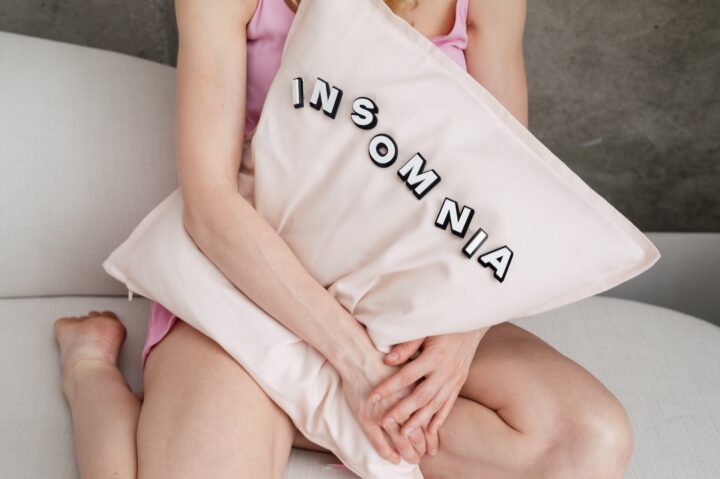Restful Nights: Exploring Effective Solutions for Insomnia
Tossing and turning in bed, watching the minutes tick by, the grip of insomnia can be both frustrating and debilitating. It knows no boundaries, afflicting individuals of all ages, genders, and backgrounds.
The consequences of chronic sleeplessness are far-reaching, leading to decreased cognitive functioning, impaired concentration, weakened immune system, and an increased risk of developing other health conditions such as depression and anxiety disorders. Fortunately, there’s hope on the horizon.

From non-medical techniques to innovative pharmaceutical interventions, individuals with insomnia now have various options to explore in their quest for restful nights.
Conventional Treatments for Insomnia
Numerous conventional treatments are available to address the challenges associated with insomnia. These treatments encompass a range of approaches, including:
Medications
Healthcare professionals may prescribe medication to help manage insomnia. Commonly prescribed medications include:
- Sedative-hypnotics: These medications, such as Ambien, promote sleepiness and reduce sleep onset latency. Check discount websites to get an Affordable Ambien Coupon today.
- Melatonin agonists: Melatonin is a hormone involved in regulating sleep-wake cycles.
- Antidepressants: Some antidepressant medications, particularly those with sedating effects, such as trazodone or doxepin, may be prescribed off-label to help improve sleep.
Sleep Hygiene Practices
One of the fundamental approaches to managing insomnia is adopting good sleep hygiene practices. And this involves creating a comfortable sleep environment, establishing a consistent sleep schedule, promoting relaxation techniques such as reading or taking a warm bath, and avoiding stimulating activities before bedtime.
By following these practices, individuals can regulate their sleep-wake cycle and enhance their chances of falling and staying asleep.
Cognitive-behavioral Therapy for Insomnia (CBT-I)
CBT-I is a type of therapy specifically designed to address insomnia. It focuses on identifying and changing the thoughts, beliefs, and behaviors contributing to sleep difficulties. CBT-I may involve techniques such as sleep restriction, stimulus control, relaxation training, and cognitive restructuring.
Alternative Approaches to Insomnia
In addition to conventional treatments, there are alternative approaches that individuals with insomnia may consider to improve their sleep quality. These alternative approaches offer different perspectives and techniques to address the underlying causes of insomnia and promote better sleep.
Let’s explore some of these alternative approaches:
Relaxation Techniques
Meditation, deep breathing exercises, and progressive muscle relaxation can help calm the mind and relax the body before bedtime. These techniques redirect attention away from racing thoughts and stress, creating a peaceful state conducive to sleep.
Incorporating mindfulness and relaxation into a bedtime routine may enhance sleep quality and reduce the impact of insomnia.
Herbal Remedies and Supplements
Certain herbs and supplements have been traditionally used to promote sleep and relaxation. Examples include chamomile, valerian root, and lavender. These natural remedies are believed to have sedative properties and can help regulate sleep-wake cycles.
However, it’s essential to consult a healthcare professional before using herbal remedies or supplements, as they may interact with medications or have unintended side effects.
Acupuncture and Acupressure
Acupuncture involves inserting thin needles into specific points on the body. On the other hand, acupressure applies pressure to these points using fingers or specialized tools. Both techniques aim to rebalance the body’s energy flow and promote relaxation.
Physical Exercise and Lifestyle Changes
Exercising during the day can have positive effects on sleep. Exercise promotes the release of endorphins, reduces stress, and increases overall well-being, which can contribute to better sleep at night.
Adopting a healthy lifestyle that includes a balanced diet, avoiding stimulants like caffeine and nicotine, and establishing a consistent sleep schedule can improve sleep.
Emerging Technologies for Insomnia
As technology advances, innovative tools and devices are being developed to manage insomnia. These emerging technologies offer new possibilities for understanding and improving sleep patterns.
Let’s delve into some of the promising technologies that have emerged for addressing insomnia:
Wearable Devices and Sleep Trackers
Wearable devices, such as smartwatches and fitness trackers, equipped with sleep-tracking capabilities provide valuable insights into sleep patterns. They monitor factors like sleep duration, sleep stages, heart rate, and movement during sleep. By analyzing this data, individuals can better understand their sleep quality and identify potential areas of improvement.
Light Therapy and Chronotherapy
Light therapy involves exposure to specific wavelengths of light to regulate circadian rhythms. On the other hand, chronotherapy is a technique that adjusts sleep and wakes times gradually. Both light therapy and chronotherapy offer non-invasive approaches to improving sleep patterns.
Virtual Reality (VR) and Biofeedback
VR technologies are being explored as potential tools for addressing insomnia. VR experiences can create immersive and relaxing environments that promote calmness and facilitate better sleep.
Additionally, biofeedback devices can provide real-time information about physiological parameters like heart rate and muscle tension. By monitoring and adjusting these parameters, individuals can learn to regulate their body’s response to stress and promote relaxation for improved sleep.
Conclusion
In the quest for restful nights, individuals must seek appropriate help and guidance. Every individual’s experience with insomnia is unique, and a personalized approach tailored to their specific needs is crucial. Still, the comprehensive exploration of effective solutions in this discussion offers hope for individuals seeking relief.


